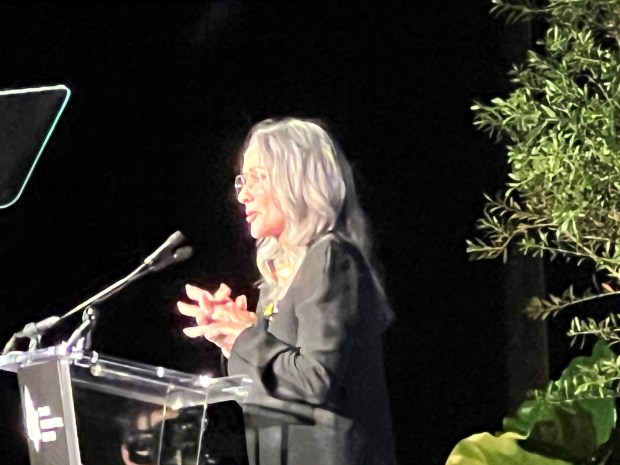Though not officially labeled as a Welcoming City on paper, the Skokie Village Board approved measures to restrict assisting federal immigration agents in certain cases. The village will also be able to give limited help to those in the immigration booking system.
The updated Human Relations Chapter of the village’s code does not conflict with federal law, as it still requires the village and its police department to assist federal officers in serving criminal warrants, officials said. The Village Board unanimously approved the changes to the village’s code at its March 17 meeting.
The new addendums in the Human Relations chapter state that the village shall not assist immigration officers who do not have a criminal warrant, assist in information sharing, arrest or detain someone based solely on their immigration status.
The village is also mandated to notify foreign nationals of their right to contact consulates within 48 hours of their booking, support programs available for immigrants who are victims of qualifying crimes and who are potential witnesses for prosecution of a crime, and to respond promptly to requests for visa supporting documents and visa certifications.
Those mandates and restrictions were already in practice in Skokie, according to Mayor George Van Dusen, but the Village Board approved updating to reinforce its stance.
Under President Donald Trump’s first term in office, the Village Board approved amendments to its Human Relations chapter in 2017 to create safe zones in health care facilities, schools and universities. Michael Lorge, the village’s corporation counsel said at the time that the village granted legal protections to its residents that are commonly seen in “sanctuary cities.”
After Trump was sworn in for his second term, Fred Tsao, the senior policy council for the Illinois Coalition for Immigrant and Refugee Rights (ICIRR) wrote an email to Lorge and Trustee James Johnson and two other recipients saying the village’s ordinance is strong, but it could be strengthened if its language were to be clarified.
Van Dusen defended the integrity of the 2017 protections at a Village Board meeting Feb. 3, and said the Board created those protections before the state approved the TRUST Act.
The subject came back to the Village Board as an honorary proclamation at the Feb. 18 meeting reiterating the village’s support for all immigrants.
“Mr. Tsao, with (ICIRR) made some suggestions to us,” Van Dusen said after the proclamation was read by Trustee Khem Khouen. “In the (Police) Chief’s guidance, he states the following, ‘Under prohibited activities: No compliance with immigration detainers, administrative warrants or custody transfers without a criminal warrant. No sharing of information about individuals in custody, including release dates.’”
“Under stops, arrests and detentions: No stops, searches, arrests or detentions based solely on immigration status.”
“The Chief reiterates, ICE administrative warrants do not justify arrests or detentions,” Van Dusen said. “Individuals in custody cannot be denied services, benefits or programs based on immigration status.”
“Facilities must notify foreign nationals of the right to contact consulates within 48 hours of booking,” he said.
Van Dusen said the police department does so to build community trust and treat all individuals equitably, regardless of immigration status.
Khoeun thanked Van Dusen for explaining the ordinance publicly, and filed a motion to clarify the village’s intentions in its Human Relations Chapter. “We want to make sure that it’s explicit so that we’re future-proofing it as well, regardless of who’s here,” she said, while adding to her motion a provision for the village to work with ICIRR to be proactive in making changes to the village’s code if necessary.
The motion was seconded by Trustee Keith Robinson; the Village Board had approved a first reading of it on March 3.



